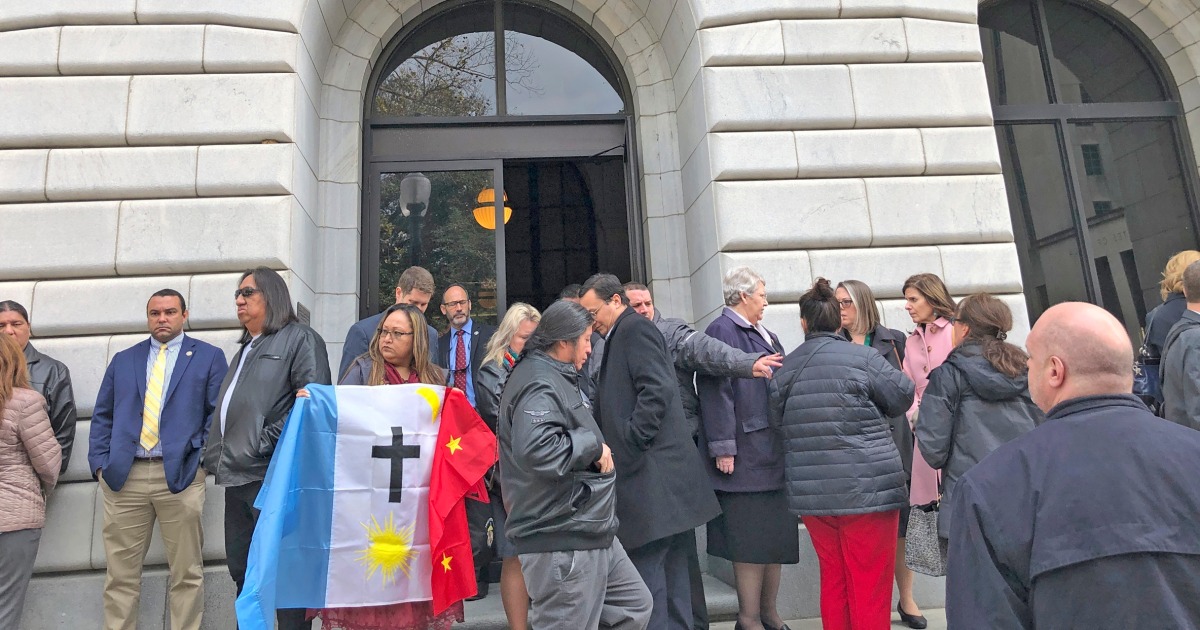- Joined
- Jun 20, 2018
- Messages
- 60,946
- Reaction score
- 39,366
- Location
- Somewhere in the Low Country
- Gender
- Female
- Political Leaning
- Slightly Liberal
Why does it always seem to be Texas? So, they overturned Roe and now they want to go back to kidnapping children off tribal lands and place them with non tribal members? Sorry, but after all the US has done, after ignoring treaty after treaty, stealing all of the land and placing them in concentration camps after nearly starving them to death....leave them be....they have sovereignty over their own tribal affairs.

 www.nbcnews.com
www.nbcnews.com
The Supreme Court on Monday agreed to resolve a dispute over the legality of decades-old federal requirements that give Native American families priority to adopt Native American children in a challenge pursued by a group of non-Native adoptive families and the state of Texas.
The justices will review lower court decisions that declared several key parts of the Indian Child Welfare Act of 1978 unconstitutional. President Joe Biden’s administration and several Native American tribes are defending the law, which aims to reinforce tribal connections by placing Native American children with relatives or within their communities.
The U.S. Congress passed the 1978 law in response to concern over child welfare practices that had resulted in the separation of large numbers of Native American children from their families through adoption or foster placement, usually in non-Native American homes. Tribes and Native American advocacy groups have maintained that the child welfare law helps preserve their culture and family connections.

Supreme Court takes up dispute over Native American adoption law
The Biden administration and several Native American tribes are defending the law, which aims to reinforce tribal connections.
The Supreme Court on Monday agreed to resolve a dispute over the legality of decades-old federal requirements that give Native American families priority to adopt Native American children in a challenge pursued by a group of non-Native adoptive families and the state of Texas.
The justices will review lower court decisions that declared several key parts of the Indian Child Welfare Act of 1978 unconstitutional. President Joe Biden’s administration and several Native American tribes are defending the law, which aims to reinforce tribal connections by placing Native American children with relatives or within their communities.
The U.S. Congress passed the 1978 law in response to concern over child welfare practices that had resulted in the separation of large numbers of Native American children from their families through adoption or foster placement, usually in non-Native American homes. Tribes and Native American advocacy groups have maintained that the child welfare law helps preserve their culture and family connections.
